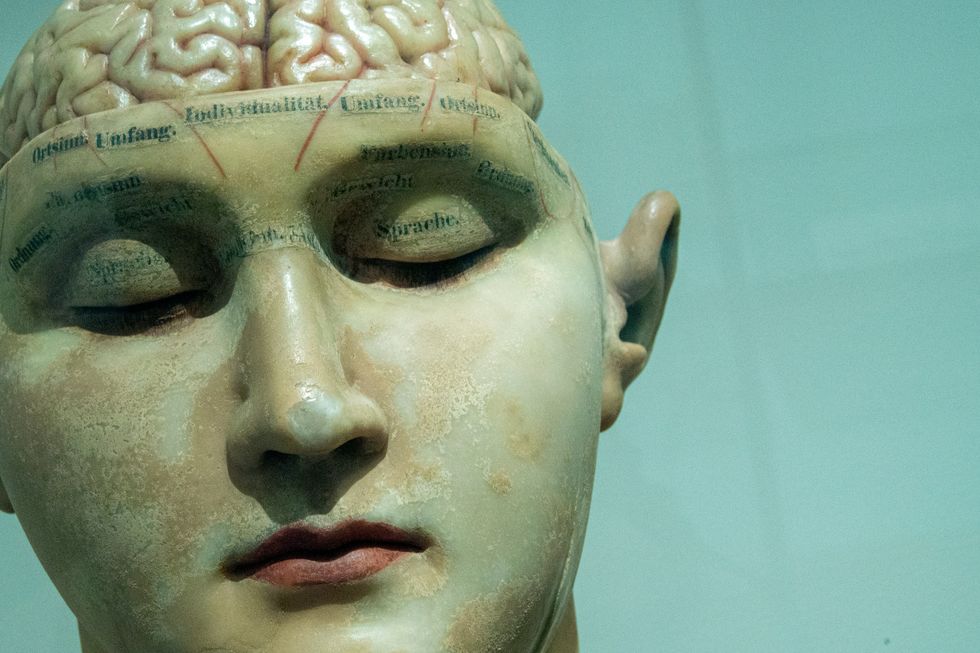Within days of Trump’s inauguration, Republicans swiftly laid the groundwork to “repeal and replace” the Affordable Care Act, nicknamed “Obamacare,” which provided health insurance to more than 20 million Americans. The public has responded with panic about pre-existing conditions and potential sticker shock, storming the offices and town halls of waffling representatives.
Yet the Republican-held Congress has already passed their stated January 27 deadline for deciding on a repeal option. “In two months, health plans have to file their rates for 2018 to be locked in and they have no idea if there’s even going to be an insurance market,” says Adam Beck, assistant professor of health insurance at The American College of Financial Services in Pennsylvania.
[quote position="left" is_quote="true"]I'm a 100 percent walking pre-existing condition.[/quote]
Despite mixed reviews, the ACA is still “the most comprehensive health care reform this country has seen in 150 years,” says Daniel Dawes, a Georgia attorney and author of 150 Years of Obamacare. Repealing it would undo significant protections for many, but will hurt the sickest and poorest Americans the most. But they won’t be the only ones affected.
The return of pre-existing conditions
“If you are low income and have a pre-existing condition or chronic health condition, I’m quite certain you will not have health insurance coverage a year from now, or it will be an all-consuming expense,” Beck says.
This alarms people like California mother Megan Dooley Fisher. Diagnosed in the early 2000s with rare autoimmune vasculitis, Behçet’s Disease, which causes ulcers in all the mucus membranes in your body as well as “migraines, debilitating joint pain,” and fatigue, she calls herself “a 100 percent walking pre-existing condition.” Pre-ACA, she worked under the table to keep her Medi-Cal, and went without insurance for several terrible years in which she slept 15 to 17 hours a day and could barely work. She relies upon a medication called Enbrel, which would cost her nearly $2,500 out-of-pocket and took years to find.
[quote position="right" is_quote="true"]Most people take the choice to stay alive.[/quote]
The idea of going without it “frustrates the hell out of me,” she says, because “it keeps me out of the hospital and consuming healthcare that other people could be using. If I get my medications, I can be a contributing member of society.” If the ACA is repealed, she says, “I’m terrified that I won’t be able to keep a roof over my head.”
Tough choices for freelancers and low-income Americans
Beck says we’ll see recurrences of this terrible choice between one’s livelihood and one’s life if the ACA is repealed. He calls it a “perverse incentive” to only make Medicaid available to people with disabilities or who are well below the poverty level, because “if you have to make the choice of working to make income to support yourself, but not have medical care, or stay alive and live off Medicaid, most people take the choice to stay alive.”
[quote position="left" is_quote="true"]We’re throwing the system into complete chaos. The market isn't going to know how to price anything.[/quote]
After losing her job through downsizing, Laura Kiesel, a freelance writer and editor, relies upon MassHealth, Massachusetts’ state Medicaid program, to treat degenerative disc disease, endometriosis of the uterus, and small fiber neuropathy, all of which have required surgery. She and her boyfriend have even put off marriage “indefinitely,” since his insurance policy “wouldn’t even come close to covering my vast medical needs.”
Kiesel emphasizes that Medicaid access is a disability rights issue. “Taking Medicaid away from us or forcing us onto other insurance programs which lack the services we require or to pay money we don’t have, condemns us to further pain and suffering, and in some cases, death.”
Shifts in employer-provided coverage
As for those who have insurance through their employers and don’t believe they will be affected by changes in the ACA, Dawes says that “before the ACA, 40 percent of the costs of the uninsured were being placed on the backs of those who were insured” in the form of higher premiums and deductibles. This “uncompensated care” as it’s called has seen significant drops under the ACA, but will rise again if it is repealed. In fact, the costs of repeal are projected to be as high as $350 billion through 2027.
“This time, we’re not going back to the system we had pre-ACA. We’re now throwing the system into complete chaos,” Beck adds. Repeal will have an impact on even large group insurance plans, he says, “because the market isn’t going to know how to price anything.” He sees a return of annual limits on particular medical conditions, and an increase in medical bankruptcy.
[quote position="full" is_quote="true"]‘Repeal and replace’ is a really catchy slogan around election time but it’s not the same as legislative language.[/quote]
Not to mention that the ACA provides preventative services benefits for everyone “at no-cost sharing,” Dawes says. “Whether you have employer health care insurance, or through the individual market, or through Medicaid, your insurance company or plan is required to be sure that you are not being charged for those benefits. … That is a huge deal.”
“I think a lot of people are going to die,” Beck states bluntly.
Here’s what you can do
So what can people do in the face of losing their insurance? Dawes says some can turn to community health centers, where services are often provided on a sliding scale. A handful of new apps allow you to get basic prescriptions without a doctor, and Beck says nonprofits and charities may be able to offer temporary assistance or discounts in medications or services, but aren’t meant for long term care. Some states already have medical exchanges in place, like California and Massachusetts, but more states do not.
Beck has hope that “the Trump administration and Congress are going to find that saying ‘hashtag repeal-and-replace’ is a really catchy slogan around election time, but it’s not the same as legislative language. It’s a lot harder to get consensus to reach 218 votes around an actual bill.”
Dawes takes a little comfort that every time Republicans introduce a repeal and replacement bill, “it seems they are getting more moderate and taking a middle-ground approach.” He hopes the moderate Republicans—those “who know this would be a huge tragedy”—will win out.
















 Stoner's torso after a successful surgery.Photo credit: @sydneystonershelton
Stoner's torso after a successful surgery.Photo credit: @sydneystonershelton Bringing a family member to your doctor's appointment could help you ensure that your needs are met.Photo credit: Canva
Bringing a family member to your doctor's appointment could help you ensure that your needs are met.Photo credit: Canva
 You cannot be too careful when trying to prevent the spread of the flu.Photo credit: Canva
You cannot be too careful when trying to prevent the spread of the flu.Photo credit: Canva
 Big Brain GIF by Jay Sprogell
Big Brain GIF by Jay Sprogell
 Shake It Off Wet Dog GIF by BuzzFeed
Shake It Off Wet Dog GIF by BuzzFeed
 Working out with friends also makes exercise more enjoyable (and feel quicker).Photo credit: Canva
Working out with friends also makes exercise more enjoyable (and feel quicker).Photo credit: Canva
 People with Imposter Syndrome can't accept their achievements.
Photo by
People with Imposter Syndrome can't accept their achievements.
Photo by  Emotion Feeling GIF by Quilt
Emotion Feeling GIF by Quilt Psychologist - Free of Charge Creative Commons Notepad 1 image
Psychologist - Free of Charge Creative Commons Notepad 1 image
 Human anatomy model.
Photo by
Human anatomy model.
Photo by